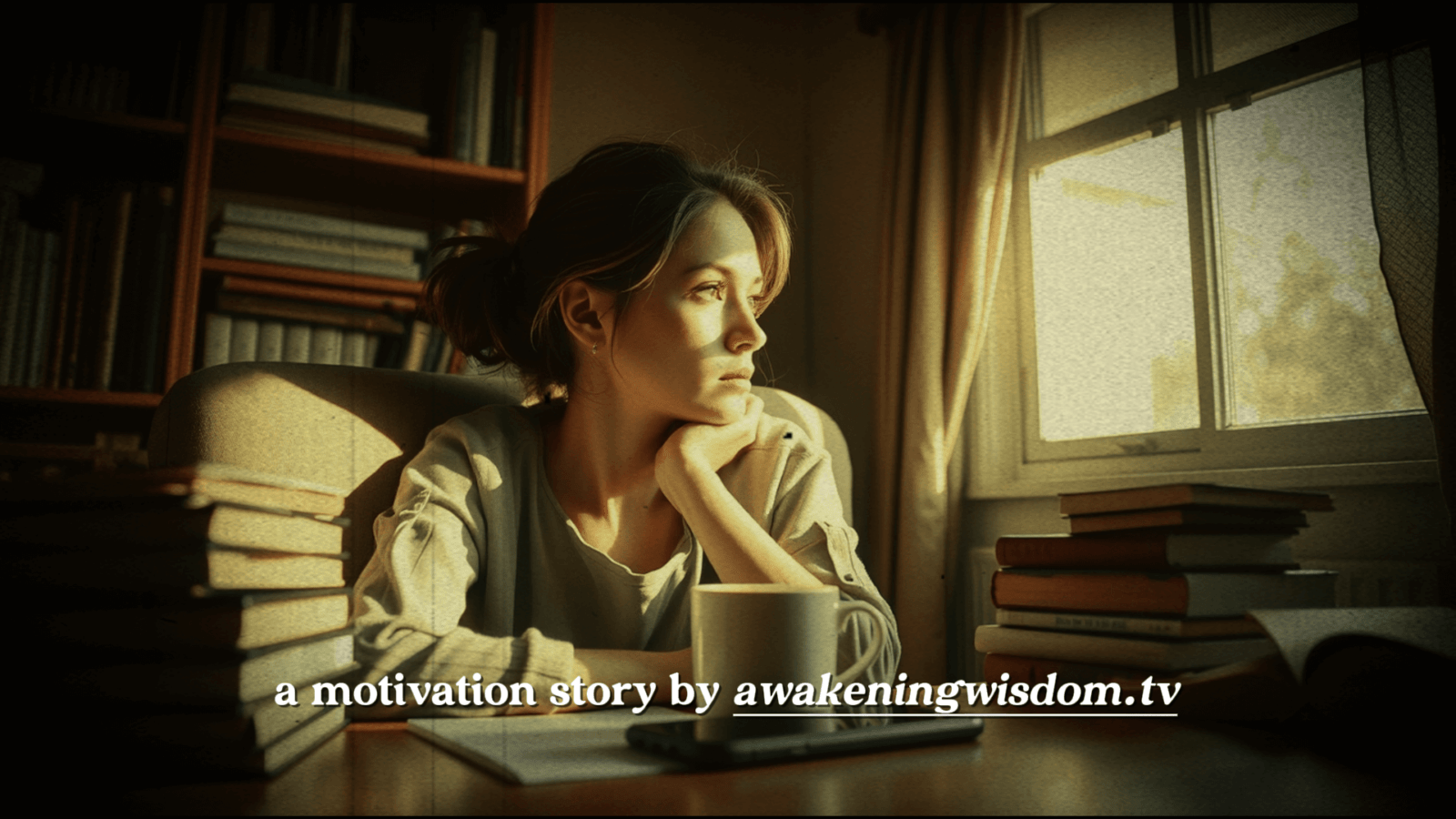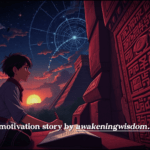We all waste time on things that don’t really matter. But what happens when we finally decide to change? This is the story of how I took control of my life and stopped wasting time on meaningless things.
The Moment I Realized I Was Wasting My Life
It happened on a random Tuesday.
Nothing special about the day. No major crisis. No big revelation. Just a quiet, boring Tuesday afternoon.
I had been sitting on my couch for hours, scrolling mindlessly through social media. Half an hour on Instagram. Another forty minutes on YouTube. A quick detour through TikTok, then back to Instagram again.
At some point, I looked at the clock. 3:47 PM.
I had been sitting there since noon.
I tried to justify it to myself. I needed to relax. I deserved a break. It’s not like I had anything urgent to do.
But deep down, I knew the truth.
I wasn’t just relaxing.
I was hiding.
From what? I wasn’t sure yet.
But I knew one thing—this wasn’t the life I wanted to live.
And for the first time in a long time, I was ready to do something about it.
The First Step: Understanding Why I Wasted Time
I’d always told myself that I was just bad at managing time.
That I needed better schedules, a planner, or some fancy productivity app.
But the truth?
Time-wasting wasn’t the problem.
The real issue was why I was wasting time in the first place.
So I sat down, took out a notebook, and wrote one question at the top of the page:
Why do I waste time on meaningless things?
Then I forced myself to answer honestly.
What I found shocked me.
1. I Was Addicted to Comfort
Scrolling through my phone?
Watching pointless videos?
Playing games for hours?
All of these things required zero effort.
They were easy.
And the human brain loves easy.
Whenever I felt stressed, overwhelmed, or even just bored, my brain instantly reached for the most effortless escape.
And in today’s world? There were plenty of those.
2. I Was Afraid of Failure
Deep down, I knew there were things I should be doing.
- Writing the book I always talked about.
- Learning a new skill.
- Fixing my finances.
- Working out.
But every time I thought about starting, my mind filled with doubts.
“What if I suck at it?”
“What if I waste time and nothing comes from it?”
“What if I fail?”
So instead of trying, I convinced myself that scrolling on my phone was a better use of time.
Spoiler alert: It wasn’t.
3. I Had No Clear Purpose
I wasn’t working toward anything meaningful.
I woke up, went to work, came home, wasted time, went to bed—repeat forever.
Without a clear goal, every day blurred into the next.
And when you’re drifting with no direction, wasting time is the easiest thing to do.
The Hardest Part: Breaking the Habit
Understanding why I wasted time was a start.
But fixing it?
That was harder.
Because stopping time-wasting habits wasn’t just about self-discipline—it was about reprogramming my brain to want something better.
Step 1: I Made Wasting Time Feel Uncomfortable
I knew my biggest enemy was mindless consumption—social media, YouTube, gaming.
So I made those things as uncomfortable as possible.
- I deleted every social media app from my phone.
- I put my laptop in my closet when I wasn’t working.
- I left my phone in another room whenever I needed to focus.
If I wanted to waste time, I had to work for it.
And surprisingly, that tiny bit of effort was enough to stop me most of the time.
Step 2: I Created “Friction-Free” Good Habits
I knew that if I wanted to change, I needed to make the right things easier.
So I set myself up for success:
- I put books in every room, so if I felt the urge to grab my phone, I’d grab a book instead.
- I left a notebook on my desk, making it easy to write ideas instead of browsing the internet.
- I kept my running shoes by the door, so I had no excuse not to go outside.
The less effort it took, the more likely I was to do it.
And it worked.
Step 3: I Gave My Time a Purpose
For the first time in years, I sat down and asked myself:
“What do I actually want to do with my life?”
The answer didn’t come right away.
But after some reflection, I found things that actually mattered to me:
✅ Writing stories
✅ Learning to cook
✅ Getting stronger
✅ Saving money and building financial security
✅ Reading more books
So I did something radical—I scheduled those things.
I treated them like they were as important as my job.
Because they were.
And when I started filling my time with things that mattered, the desire to waste time slowly disappeared.
The Unexpected Side Effects of Changing My Habits
At first, I thought this whole experiment would just make me more productive.
But something unexpected happened.
I started feeling happier.
- My mind felt clearer.
- I slept better at night.
- I felt less anxious about the future.
- I had more energy during the day.
And the strangest part?
I didn’t even miss the things I thought I’d miss.
I didn’t miss endlessly scrolling through social media.
I didn’t miss binge-watching shows for hours.
I didn’t miss playing video games until 3 AM.
Because for the first time in a long time, I felt alive.
What I Learned from Stopping My Time-Wasting Habits
Looking back, I realized something important:
I had never been too busy to do the things I cared about.
I just never made them a priority.
I had plenty of time—I just wasted it on things that didn’t matter.
And when I finally took control of how I spent my days, everything changed.
How You Can Stop Wasting Time on Meaningless Things
If you feel stuck, like you’re wasting time but don’t know how to stop, here’s what helped me:
1. Figure Out WHY You Waste Time
Ask yourself: What am I avoiding?
Are you hiding from discomfort? Are you afraid of failure? Are you just drifting with no purpose?
Find the real reason—that’s where the change begins.
2. Make Wasting Time Difficult
- Delete distracting apps.
- Put your phone out of reach.
- Turn off notifications.
- Create barriers between yourself and your worst habits.
3. Fill Your Time with Things That Matter
- What do you actually care about?
- What have you always wanted to do but “never had time” for?
- Schedule it. Treat it like a job. Make it part of your life.
4. Accept That Change is Hard (But Worth It)
Breaking old habits feels uncomfortable at first.
But once you push through that discomfort, you’ll realize how much time you’ve been wasting on things that don’t matter.
And when you finally start spending your time wisely?
Your whole life changes.
Just like mine did.









Leave a comment